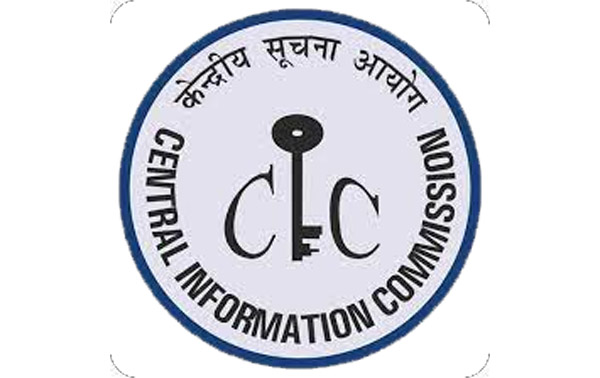‘Funds allocation, utilization should be in public domain’
Mohinder Verma
JAMMU, Nov 7: In order to promote transparency and accountability, the Central Information Commission (CIC) has directed the Public Authorities of the Union Territory of Jammu and Kashmir to voluntarily disclose information related to different Government schemes on their respective websites. Moreover, the transparency watchdog has laid stress on putting in public domain the allocation of funds, their utilization and works undertaken for prompt assessment by the information seekers.
Follow the Daily Excelsior channel on WhatsApp
While dealing with several Second Appeals filed by the appellants after being denied information by the Public Information Officers (PIOs) of different departments of Government of Union Territory of Jammu and Kashmir, the Central Information Commission observed, “information related to Government schemes like Mahatma Gandhi National Rural Employment Generation Act (MGNREGA), Antyodaya Anna Yojana (AAY), Pradhan Mantri Awas Yojna (PMAY) and all health related schemes etc, which is permissible for disclosure under the RTI Act, 2005, should be voluntarily disclosed by the Public Authorities in the public domain in the interest of transparency and accountability”.
“The Public Authorities should ensure suo motu disclosure of maximum information on their respective websites in compliance of the provisions of Section 4 of the RTI Act, while exercising due caution and strict adherence to the provisions of the Sections 8 and 9 of the RTI Act. Any information which falls under any of the exemption clauses shall be severed by applying the severability clause as laid down under Section 10 of the RTI Act”, the CIC further said.
It is pertinent to mention here that Section 4 of the Right to Information Act, 2005 outlines the obligations of the Public Authorities to disseminate information and make it available to the public while as Section 8 of the Act provides that there is no obligation to give any citizen an information which relates to personal information and disclosure of which has no relationship to any public activity or interest, or which would cause unwarranted invasion of privacy of the individual.
Likewise, Section 9 of the Act read: “Without prejudice to the provisions of Section 8, a Central Public Information Officer or a State Public Information Officer, as the case may be, may reject a request for information where such a request for providing access would involve an infringement of copyright subsisting in a person other than the State”.
“An open Government, which is the cherished objective of the RTI Act, can be realized only if all Public Authorities comply with proactive disclosure norms. Section 4(2) of the RTI Act mandates every Public Authority to provide as much information suo-motu to the public at regular intervals through various means of communications, including the internet, so that the public need not resort to the use of RTI Act”, the Central Information Commission has mentioned in different orders issued to the Public Authorities of J&K.
The Commission has also directed the Public Information Officers (PIOs) to ensure that details of the allocation of funds under different schemes, their utilization and developmental works undertaken are voluntarily disclosed on the websites in the interest of the public at large.
The CIC has further observed, “the information like appointment orders, advertisement notices, selection list of public officials, particularly related to Government development schemes as sought in different RTI applications and which is permissible for disclosure under the RTI Act, 2005 should be voluntarily disclosed by the Public Authorities in the public domain”.
Keeping in view several directives issued by the Central Information Commission in the recent past, the Government of UT of J&K should issue explicit instructions to all the departments to ensure strict compliance of the RTI Act and seek compliance of the same in a time bound manner. “Had there been adherence to the transparency law the Central Information Commission would not have repeatedly expressed displeasure over the approach of the Public Authorties”, sources said.


